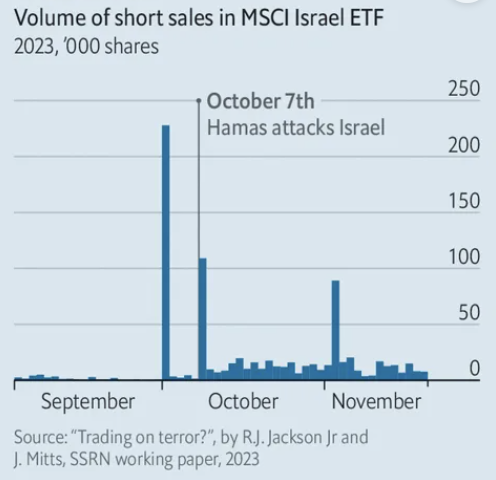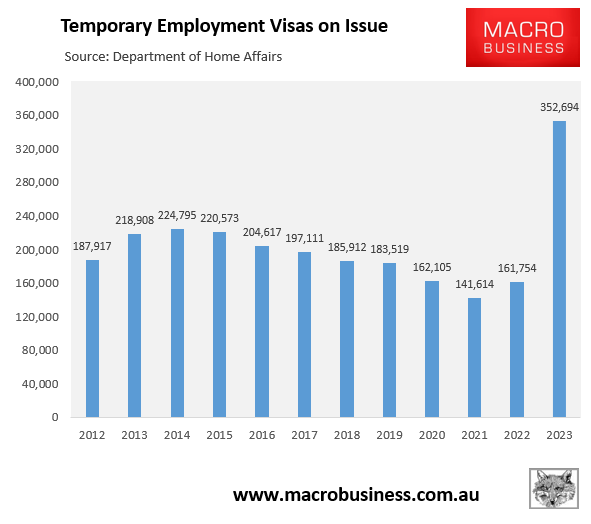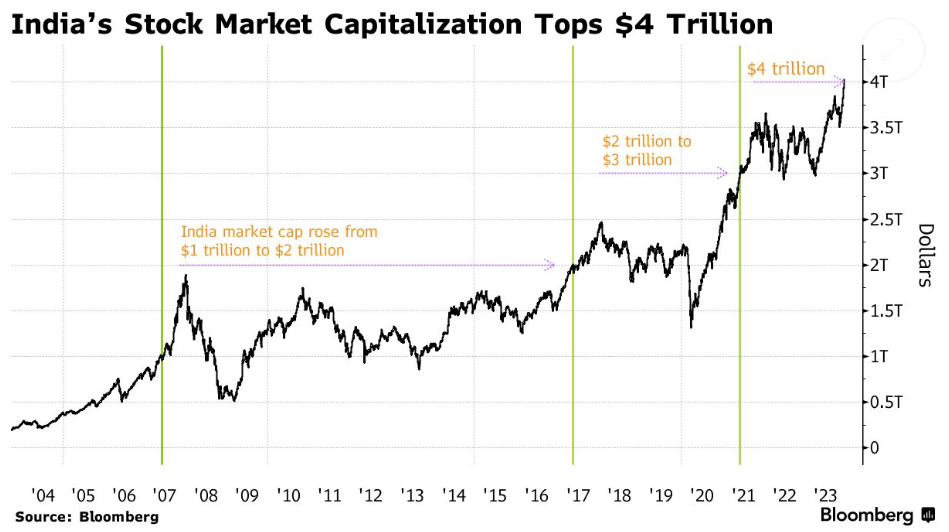Enjoy Wry & Dry: a cynical and irreverent blend of the week in politics, economics and life.
Ten stories you may have missed…
- Victoria: Emeritus Chairman Dan’s resume
- Hamas: made millions by short-selling
- Australia: GDP per capita falls
- Canberra: more cash splashed
- Australia: we no longer deliver
- Hong Kong: “to the ends of the earth”
- London: Labour in praise of Thatcher
- Private schools: no more building fund tax deductions
- US Supreme court: bankruptcy
- Greece: schadenfreude
1. Victoria: Emeritus Chairman Dan’s resume
It was feeding time at the media zoo on Wednesday. Hot on the heels of the PISA report1 showing that 26% of Victorian 15-year-olds’ educational proficiency was too low “to enable them to participate effectively and productively in life,” the long-awaited Ombudsman’s report into the Victorian public service under Emeritus Chairman Dan Andrews was fed to the salivating media mouths.
There was more than enough for indigestion. Victoria’s public service, the Ombudsman’s massive report said, is “ruled at the highest level by a culture of fear.” No subtlety there.
Her report showed that Emeritus Chairman Dan’s ‘Private Office’ employed more than 84 people (Albo’s has just 50 and the premier of NSW 34). The “centralisation of decision making within Andrews’ private office” was deeply troubling for current and former senior public officials.

Words such as “centralisation of decision making”; “culture of fear”; “secrecy”; “marginalisation of independent voices”; “opaque selection methods”; and “power concentration” punctuated the report.
All of this was music to Emeritus Chairman Dan’s capacious ears. How good to have the Ombudsman as a referee! Just the words he needed to put on his resume.
Y’see, he has those upcoming job interviews in Beijing, working for Emperor Eleven. The Ombudsman’s report showed that he has all the traits to succeed in Emperor Eleven’s court.
1 Programme for International Student Assessment, whereby 15-year-old student from 81 countries are assessed for science, reading and maths.
2. Hamas: made millions by shortselling
Those vile people at Hamas, not only committed a horrifying massacre on 7 October, it seems they also made money2.
A person or persons, who knew the assault was to happen, profited from a crash in the Israeli stock market.

The profit comes from ‘short-selling’. This is selling shares that have been borrowed in anticipation of the price of those shares falling. And then buying back the shares to repay the lender of the shares. In this case, it was an Exchange Traded Fund (an investment product that is listed on a stock exchange, which makes it easy to trade) that tracked the Israeli share market that was sold short.
Some $2m was made from the deals.
2 Source: new working paper by Robert Jackson Jr, a former commissioner of America’s Securities and Exchange Commission, and Joshua Mitts of Columbia University, cited in The Economist.
3. Australia: GDP per capita falls
The sky is not falling. Well, not yet. But Australia’s per capita wealth is.
GDP rose by just 0.2% in the September quarter. But GDP per capita fell by 0.5%. It’s all about immigration. Australia’s population increased by 654,000 in the year to September. Almost 200,000 of these moved to Victoria.
No wonder residential rentals are booming. Consider the below, just one of many examples of a category of visa holder.

Disturbingly, household disposable income fell in real terms by 4.3% in the year to September. Readers can point the bone at higher interest rates, higher inflation and massively increasing taxes (because of people earning more and being pushed into higher tax brackets – income taxes have risen by 28% over the 12 months, the highest since 1977).
[For more commentary Readers might read the Investment Matters article that follows Wry & Dry – click the link.]
There is now a good chance that GDP in the December quarter will be negative. Readers will recall JM Keynes’ famous words when one of his forecasts turned out to be wrong: “When the facts change, I change my mind.” And so Wry & Dry will change his. It now seems likely that we have seen the last of interest rate increases.
4. Canberra: more cash splashed
Readers will recall that the May budget promised that $30 billion would be saved in NDIS spending. Well, Albo has done this. By pushing costs onto the states.
Perfect? Well, not quite. Albo had to give the states an extra $25 billion to get them to agree.
Y’see, as fiscal matters of the NDIS cannot change without the agreement of the states, the states held all the aces. Albo folded at the first round and gave the states a three-year top-up of GST payments3 as well as an uncosted increase in the fed’s share of state hospital expenditure to 45% from 40%.
So, the net saving is actually just $5 billion. But, hey! The fed’s NDIS outlays will reduce by $30 billion.
Everyone’s a winner!
3 This arose from former PM Morrison’s failed deal with Western Australia to save the day jobs of four W.A. liberal MP’s.
5. Australia: We no longer deliver
In an effort to remain viable, Australia Post will permanently stop the daily delivery of letters.
How will Readers notice?
6. Hong Kong: “…to the ends of the Earth”
Those nasty people in Hong Kong will win in the end. Agnes Chow, a pro-democracy student activist who was on bail for her role in the 2019 protests, has fled Hong Kong.
Ms. Chow is now studying in Canada, to where she was permitted to go, provided she met her bail conditions. She has now said she “ain’t going back” to Hong Kong.
On Monday, the Hong Kong government condemned “the shameful acts of Chow… of absconding to avoid legal responsibilities.”
But wait, there’s more. “She was “completely devoid of integrity” and “her hypocrisy, disgrace and disregard for law and order are laid bare.”
Hmm. What is Chinese for the pot called the kettle black?
Predictably the Hong Kong government said, “Fugitives will be pursued for life unless they turn themselves in.”

Readers should wait for the media release that Ms. Chow has mysteriously died following a meal in a Canadian restaurant.
7. UK: Labour in praise of Thatcher
In a surprise to not only his Labor party behind him but also to the honourable members opposite, Sir Keir Starmer, head of the UK’s opposition Labour party, has heaped praise on former UK PM Margaret Thatcher.
Good grief! Thatcher was reviled by left wingers of all tribes and those who suckled on the teat of government munificence, including individuals, companies and civil servants.
Sir Keir lauded the Iron Lady as one of three key change-makers in modern British political history, alongside Tony Blair and Clement Attlee. “Thatcher sought to drag Britain out of its stupor by setting loose our natural entrepreneurialism.”
Former and losing Labour Party Leader, Comrade Jezza Corbyn (against whom Borisconi was lucky enough to challenge for the top UK gig) and Gordon Brown, the last Labour PM, both choked on their porridge on hearing the news.
8. Private schools: no more tax deductions for buildings?
It was a media release that caused the Principals and boards of every private school in Australia to collectively pen letters to the editors.
The Productivity Commission has recommended, in an interim report, the scrapping of the tax deductibility of donations to school building funds. Ye gods! Cough. Splutter.
School or college building funds are the second highest number of entities eligible for tax deductions.
Wry & Dry posits that there are two chances of the recommendation being adopted by the government.
9. US Supreme Court: using bankruptcy to avoid civil suits
The robed folk of the US Supreme Court have another doozy of a case before them. And it involves that malevolent family, the billionaire Sacklers and its amazingly addictive drug: OxyContin.
OxyContin is produced by Purdue Pharma, a company once owned by the Sackler family. Purdue was sued by victims all over America. After the Sacklers sucked almost all the funds from Purdue, Purdue sought bankruptcy protection. It agreed to pay billions to victims in exchange for full immunity from civil lawsuits for the Sackler family.
The back story is that American organisations confronted with a vast number of wrongdoing lawsuits now rely on the bankruptcy system, not the civil legal system, to devise settlements. By filing for bankruptcy, those entities are offered a path that shields them from future civil litigation.
The Purdue Pharma deal goes a step beyond that by granting similarly expansive protections to members of the wealthy Sackler family. Not only are they insulated from liability without the consent of all of those who could potentially sue them, but the Sacklers themselves do not have to personally declare bankruptcy.
There are two sides of reasoning:
Firstly, the purists: Sackler’s bankruptcy deal allows them to protect their wealth of billions of dollars while extinguishing, without payment, claims alleging trillions of dollars in damages.
Secondly, the pragmatists: organisations and companies facing similar lawsuits contend that removing these protections would mean they would face never-ending litigation, and the possibility of extinction.
Two purist organisations supported Sackler’s case. The U.S. Conference of Catholic Bishops4: these settlements offered “a chance to fairly compensate survivors of sexual abuse while ensuring the longevity of the Catholic church.” The Boy Scouts of America4: if the liability release had not applied to its settlement (a) tens of thousands of victims of sexual abuse would not be compensated and (b) it would have spelled the end of the scouts.
A group silently the pragmatists. These were lawyers: wanting to live the dream of endless litigation.
A decision is not expected until early 2024.
4 … cited releases from liability that were included in reorganisation plans for dozens of dioceses that filed for bankruptcy after facing litigation related to sexual abuse allegations.
5 … entered Chapter 11 bankruptcy proceedings in 2020 after it was named in numerous lawsuits alleging sexual abuse. It emerged from bankruptcy in April with a reorganisation plan that was approved by 85% of voting survivors.
10. Greece: schadenfreude
Schadenfreude is a delightful word, so onomatopoeic. It’s German, meaning “to take pleasure at the woes of another.”
And when playing at home, Germany has an advantage when it comes to schadenfreude. So when the Greek economy was disastrously holed below the waterline in the debt crisis of 2010, a German tabloid ran a story under the headline: “Sell your islands, you bankrupt Greeks!”
But schadenfreude is schadenfreude in any language. So fast forward to this week. And land on Germany’s very un-Germanic €60 billion budgetary problem.6 Which prompted a former Greek government minister, in an interview with the same German tabloid that in 2010 suggested a real estate solution to Greece’s then debt woes, to suggest that: “Germany should consider selling an island or two to overcome its own budgetary emergency.”
Greek for schadenfreude is still schadenfreude.

6 This crisis erupted when Germany’s constitutional court ruled that Chancellor Scholz’s government had broken the law by trying to use €60 billion of unspent pandemic funds for fighting climate change and modernising industry. As a result, Germany’s budget plans are in chaos.
Snippets from all over
1. Time’s Person of the Year
Time magazine named Taylor Swift, an American popstar, its person of the year, calling her “the master storyteller of the modern era”. (The Economist)
Wry & Dry comments: Really? Of all the people who significantly influenced events and people in 2023, a popular singer has been chosen. Is Time running out of readers?
2. UK workers working less
The British economy has been held back by a flight of workers from the jobs market and staff electing to work fewer hours after the pandemic, tied to overly generous Covid government spending, a report has claimed. (The Times)
Wry & Dry comments: A new British disease?
3. India’s stock market booms
India’s stock market value reached more than $4 trillion on Tuesday for the first time, marking a key milestone for the world’s fifth-biggest equity market as it rapidly narrows the gap with slumping Hong Kong. (Bloomberg)

Wry & Dry comments: Hong Kong has a value of $4.7 trillion. The ASX has a market cap of A$11.3 billion.
4. London club and women
The majority of members of the exclusive Garrick Club want to allow women to join, a new internal poll has revealed. The renowned central London club is currently men only. (UK Telegraph)
Wry & Dry comments: Who pays for the medical costs of the heart attacks that some current members will have on being told the news?
5. Gold: record high
The price of gold surged to a record high, as traders increase their bets that America’s Federal Reserve will soon cut interest rates. (The Economist)
Wry & Dry comments: It reached $2,135 per ounce, above its previous peak of $2,075, set in August 2020.
6. Chinese borrowers default in record numbers
Defaults by Chinese borrowers have surged to a record high since the outbreak of the coronavirus pandemic, highlighting the depth of the country’s economic downturn and the obstacles to a full recovery. (Financial Times)
Wry & Dry comments: The official figure is 8.54m, about 1% of working age Chinese.
Data
- China: Moody’s rating agency has cut its outlook for government debt to negative, from stable.
- Australia: GDP grew at 0.2% in the September quarter, less than expected. The 12-month figure was 2.1%.
- USA: job openings fell to 8.7 million in October, down from 9.6 million in September, and to the lowest in two years.
- Australia: RBA left interest rates unchanged.
And, to soothe your troubled mind…
“Kissinger was very much like Mao for three reasons: they both promoted a cult of personality; they sentenced some of their closest assistants to hard labour; and they both wrote little red books, or in Henry’s case, little-read books.”
Winston Lord, former special assistant to Henry Kissinger, writing of the momentous and secret trip that Kissinger (and he) made in 1971 to meet with Mao Zedong.
Lord probably does Kissinger’s writing success a disfavour. Kissinger’s books are certainly less read that Mao’s, but far more compelling.
Holiday schedule
Wry & Dry’s quill needs sharpening. And so, Wry & Dry’s last issue of 2023 will be Friday 15 December. And will resume on Friday 2 February 2024.
Disclaimer
The comments in Wry & Dry do not necessarily reflect those of First Samuel, its Directors or Associates.
Cheers!
Anthony Starkins

